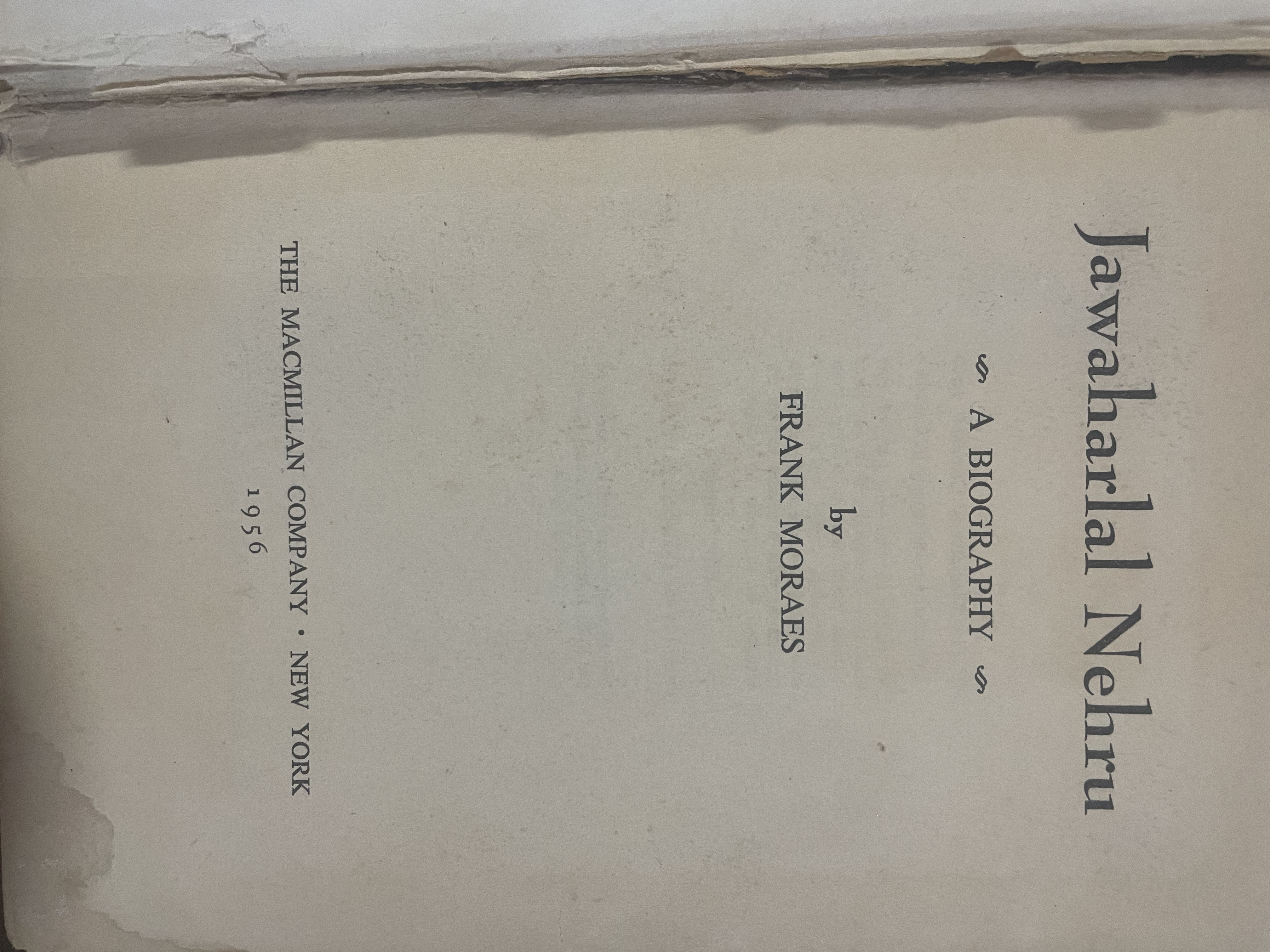An Autobiography with Musingson Recent events in India

About
Summary
Exquisite
TOC
Details
Related
URL
Images
Overview
Jawaharlal Nehru's An Autobiography, also known as Toward Freedom, is an autobiographical book written between June 1934 and February 1935 while Nehru was imprisoned, before he became the first Prime Minister of India. Published in 1936, the book provides a firsthand account of Nehru's life, his role in India's independence movement, and his ideologies.An Autobiography is also known as An Autobiography, with Musings on Recent Events in India. Penned while Nehru was in prison, the book aims to trace his mental development rather than survey recent Indian history. Nehru also used this time to study the global situation during the Great Depression, realizing India's problems were part of a larger world drama. He increasingly sympathized with the communist side, drawn to socialism and communism, though he disliked the suppression of contrary opinions and violence in Soviet Russia.
Importance of Book
An Autobiography holds significance as it provides insights into Nehru's life and his vision for India. The book reveals Nehru's charismatic personality and his belief in human values, individual dignity, an equalitarian social order, and national unity. It shares Nehru's political, social, moral, and economic experiences, reflecting his comprehensive vision for India's growth.
Key Themes
Nationalism: Nehru describes nationalism as an anti-feeling that thrives on hatred against foreign rulers.
Cultural Identity: Nehru portrays himself as a blend of Eastern and Western cultures, feeling out of place in both. He recognizes India's profound influence on him, yet feels like an exile in his own country at times and a stranger in the West.
Personal and National History: The book intertwines Nehru's personal history with India's national history, illustrating the evolution of his personality within the context of India's struggle for independence.
Appeal of Marxism: Nehru expresses his attraction to Marxism, highlighting its freedom from dogma and its scientific outlook. He notes that the Marxist interpretation of history shed light on many dark corners of his mind.
Gandhiji's Influence: Nehru reflects on Mahatma Gandhi's leadership, noting his knack for sensing the mass mind and acting at the psychological moment. He mentions that Gandhiji often acted on instinct, with reasons for his actions being afterthoughts.
Religion: Nehru expresses his complex views on religion, condemning organized religion for its blind belief, dogma, bigotry, superstition, and exploitation, while also acknowledging the deep inner craving of human beings that it fulfills.
Cultural Significance
An Autobiography holds substantial cultural significance by providing insights into the pre-independence era in India. The book captures the political realization of a nation on the brink of freedom and its battle for independence. Nehru's work reflects his understanding of Western history and its universal significance, shaping his vision for independent India.
Effects on Society
Shaping Modern India: Nehru's vision, articulated in his writings, aimed to direct economic development, establish a constitutional secular government, create economic opportunities, and maintain sovereignty through non-alignment during the Cold War.
Inspiring Generations: Nehru’s literary contributions have molded a generation of Indians and inspired people from other countries.
Promoting Humanism: Nehru’s advocacy for scientific humanism has influenced the country to focus on ethical, social, and humanitarian values, promoting practical idealism for social betterment.
Social Reforms: Nehru's work as Prime Minister led to the modernization of Hindu practices, granting women equal rights and fostering a more egalitarian society.
Guiding Principles: Nehru shared innovations and experiences in political, social, moral, and economic development, guiding India towards all-around growth.
Conclusion
An Autobiography by Jawaharlal Nehru is a comprehensive account of his life, thoughts, and vision for India. Written during his imprisonment, the book provides valuable insights into Nehru's personal and political evolution. It reflects his commitment to humanism, social justice, and the modernization of India, making it a significant work in both literature and history. The book’s cultural significance lies in its depiction of pre-independence India and its impact on shaping the nation’s identity. Nehru’s ability to blend personal reflections with national events offers a unique perspective on the making of modern India and its place in the world.
Title
An Autobiography with Musingson Recent events in India
Author
Jawahar lal Nehru
Name of Publisher
John lane the Bodly Head
Publish Date
1936
Subject
An Autobiography
Vintage
1901-1947
Edition
Second
Category
Nehru
Sub Category
Biography
Rarity
RARE
